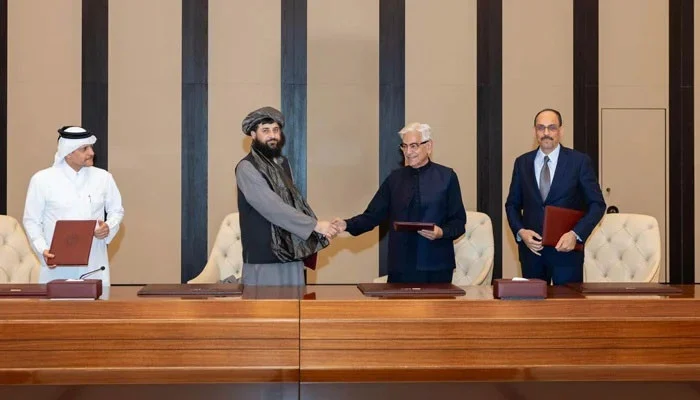The recent border clashes between Pakistan and Afghanistan in October 2025 have once again reopened old wounds, reminding both nations how fragile peace truly is. Every bullet fired across the Chaman crossing is not merely a mark on the map; it is a scar on countless hearts. The loss of innocent lives, the destruction of homes, and the rising hostility have once again trapped ordinary people between politics and pain.
These moments of tension are not new, but they remain profoundly tragic. Pakistan and Afghanistan share far more than a border; they share bloodlines, languages, traditions, and faith. From trade to tribal links, their histories are deeply intertwined. Yet despite these shared roots, mistrust and accusations continue to poison relations between the two neighbors.
Whenever violence erupts, both governments repeat familiar narratives. Pakistan blames militants crossing from Afghan territory to attack its security posts, while Afghanistan accuses Pakistan of harsh retaliations that harm civilians. Lost amid these official statements are the voices of those who suffer most—the families who pay the true price of political conflict.
When a shell lands near Spin Boldak or Chaman, it is not the generals who bleed. It is the farmer whose crops are destroyed, the child who cannot sleep out of fear, and the mother who prays for her son’s safe return. These are the human costs that rarely make the headlines. Every life lost, whether Pakistani or Afghan, is a loss for both countries. A child in Kandahar and a child in Quetta deserve the same rights; the right to live and grow without fear.
Every death weakens our shared humanity, and every act of revenge sows new seeds of hatred. For too long, aggression has been mistaken for strength. In truth, real strength lies in patience and restraint. It takes courage not to retaliate, but to rebuild. It takes true leadership not to start a war, but to prevent one. The endless cycle of blame and retribution has only brought more pain and division.
Read More: Beyond Borders: Reimagining Pak-Afghan Ties for Stability and Growth
No wall or military post can bring the peace that empathy and dialogue can. It takes more strength to extend a hand than to clench a fist. Both Islamabad and Kabul must understand that lasting peace cannot be imposed—it must be built on trust, respect, and cooperation. Instead of competing in hostility, both nations should compete in progress. The real enemies they face are not each other but poverty, extremism, and unemployment. Let Pakistan and Afghanistan race to build more schools instead of bunkers, more jobs instead of graves.
Trade can become the first bridge to rebuild what conflict has destroyed. A single truck carrying fruit, textiles, or grain across the border brings more hope than any weapon ever could. Likewise, student exchanges, sports events, and cultural collaborations can help young people see one another not as rivals, but as partners in progress. What is missing between the two countries is empathy—the ability to feel each other’s pain. When Pakistan mourns its soldiers, Afghanistan should share that grief.
When Afghan civilians die in cross-border fire, Pakistan must also feel that sorrow. Only when both nations begin to grieve together can the cycle of hate and revenge finally end. No political disagreement Is worth the life of even one innocent person. Each casualty leaves behind families, memories, and futures that can never return. History has already shown what division brings: destruction, poverty, and regret. It is time to write a new chapter—one that future generations will remember with pride, not pain.
The true strength of South Asia will not be measured by who wins the next battle, but by who chooses peace first. Peace is not weakness, it is the highest form of strength. It demands patience to forgive, courage to rebuild, and wisdom to move forward together. Pakistan and Afghanistan owe it to their children to end this cycle of suffering. Every child deserves to live without fear, to dream freely, and to grow up in a home untouched by war.
Let this be the generation that ends mistrust and replaces barbed wire with bridges. Because in the end, whether Afghan or Pakistani, our prayers are the same; to live with dignity, safety, and peace. It is time for Pakistan and Afghanistan to choose peace.
*The views expressed in this article are the author’s own and do not necessarily reflect the editorial policy of TDI.
Affqa Parveen
Affqa Parveen is a student of International Relations at Thal University, Bhakkar. Her research focuses on South Asian peacebuilding and the evolving dynamics between Pakistan and Afghanistan. She writes on diplomacy, border politics, and the human cost of conflict.



